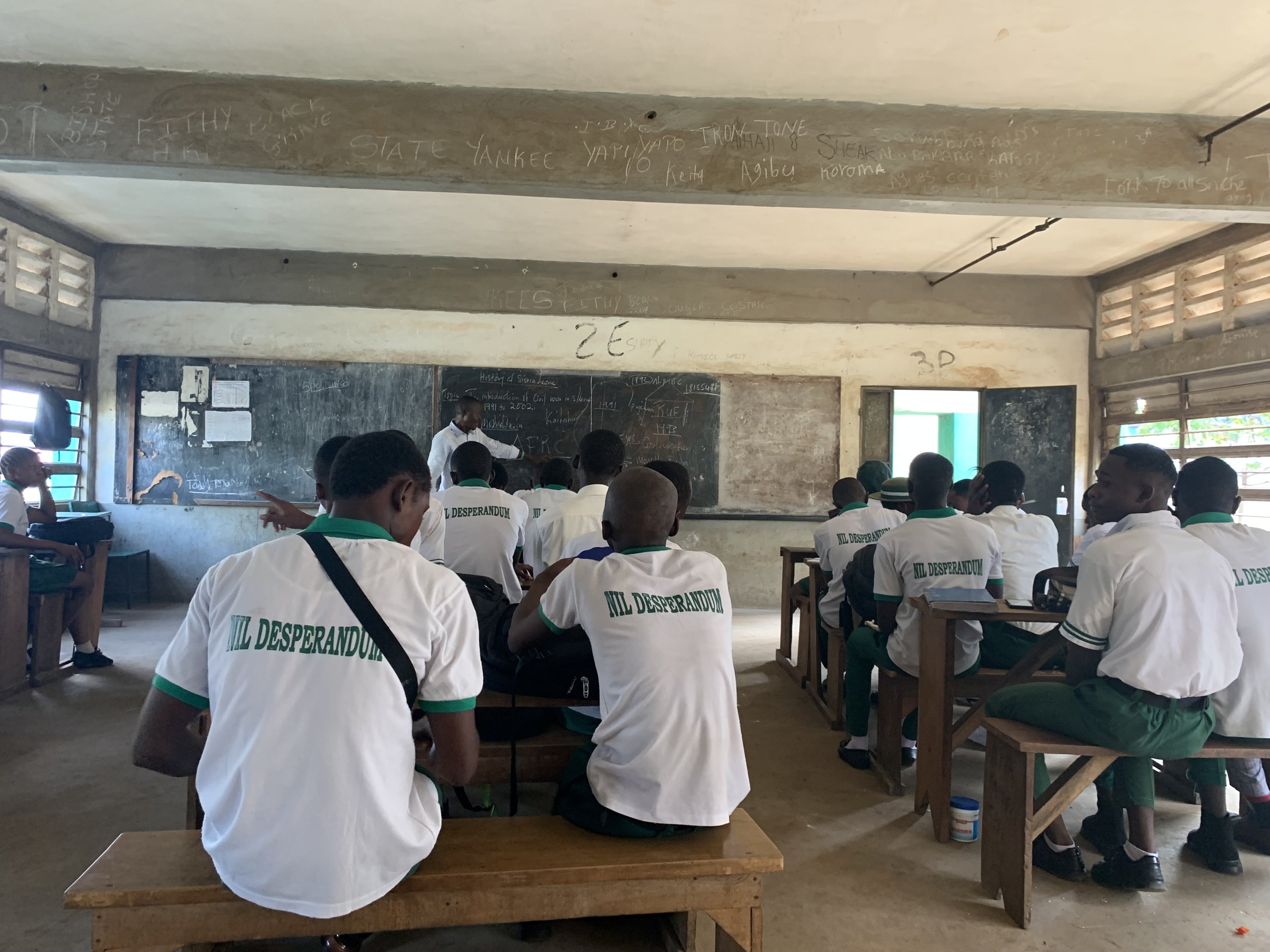
Research
Under what conditions do different forms or kinds of knowledge emerge?
My research agenda is motivated by this fundamental question in the Sociology of Knowledge, first articulated by Robert E. Park (1940). One of the core aims of my research agenda is to understand how knowledge about violence is constructed and disseminated intergenerationally. More specifically, my book project examines education about mass violence in Rwanda and Sierra Leone.
What We Tell The Children:
Transitional Justice, Education, and Memory after Mass Atrocity
In countries with recent histories of mass violence, parents and teachers face challenges when educating newer generations. They must navigate not only state narratives but also their own memories of violence. To examine how parents and teachers educate youth about recent episodes of large-scale political violence, I draw from fifteen months of fieldwork in Rwanda and Sierra Leone. I conducted participant observation of classrooms, textual analysis of educational materials, and over 190 interviews with parents, teachers, and educational experts. Both countries experienced mass violence in the 1990s, allowing me to control for historic time while exploring the effect of varying regime contexts in the production of collective memory at both micro- and macro-levels. Specifically, I examine how macro-level narratives produced through transitional justice mechanisms (TJMs) and mediated by the state simultaneously shape and are modified by educator and parental narratives at the micro-level.
In both countries under investigation, TJMs have colored historical narratives of mass violence. More specifically, I find that TJMs, such as criminal courts, truth commissions, and reconciliation policies, affect how Ministries of Education describe the violence in national curricula and textbooks. These educational materials seek to legitimize the state, often obscuring the current regime’s role in violence. A core method is the thematic sequencing (as opposed to chronological sequencing) of Rwandan and Sierra Leonean curricula. Consequently, war crimes are decoupled from the genocide in Rwanda, and the war in Sierra Leone is portrayed as a rupture in an otherwise peaceful history.
Teachers borrow from these narratives, particularly when framing the violence and identifying victims and perpetrators. Yet, state directives and macro-level narratives are not determinative. Institutional knowledge and personal memories of mass violence converge, shaping formal education about the recent episodes of mass violence. Thus, teachers may reinforce state narratives found in state-produced education materials and nuance or challenge these narratives. Still, parents exercise more agency than teachers, and consequently, they are more likely to subvert, modify, or expand upon state narratives. My comparison between Rwanda and Sierra Leone reveals the impact of political contexts on these processes of knowledge transmission.
This study contributes to education and collective memory literatures, especially as they engage with post-violence chapters of history. I demonstrate that education is not simply a place of memory dissemination, but rather, it is a place where collective memory is constructed interactionally. In short, this study demonstrates interactions between structural memory (imposed from above) and communicative memory (at the level of social interaction) in the intergenerational transmission of knowledge about recent histories of mass violence. It demonstrates how structural memory establishes parameters within which communicative memory evolves. The consequences for future peaceful coexistence may be substantial.
Hearing Cries for Accountability:
NGO-Prosecutorial Networks and Syrian Regime Crimes
In collaboration with Joachim Savelsberg, we examine how (I)NGOs contribute to universal jurisdiction trials against the Syrian regime in Europe and the role they play in disseminating knowledge about these trials. Universal jurisdiction is a legal principle that enables states to prosecute core international crimes regardless of the suspect's nationality or the country where the crime was committed. We argue that the emergence of new legal opportunity structures has driven the expanded use of universal jurisdiction. In particular, newly established legal institutions have opened avenues for civil society engagement.
(I)NGOs play a central role by collecting and supplying evidence to prosecutorial agencies, forming a dense transnational network, which we term the P-NGO complex. Informed by content analysis of organizational websites, interviews, and network analysis, the book pursues two core objectives. First, it analyzes how (I)NGOs contribute to universal jurisdiction trials against the Syrian regime. Second, it examines how NGOs disseminate trial narratives, thereby shaping public knowledge about regime repression in line with their own organizational goals.